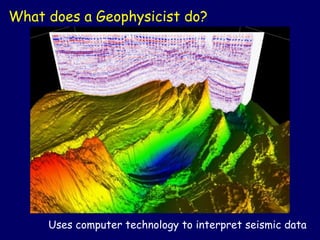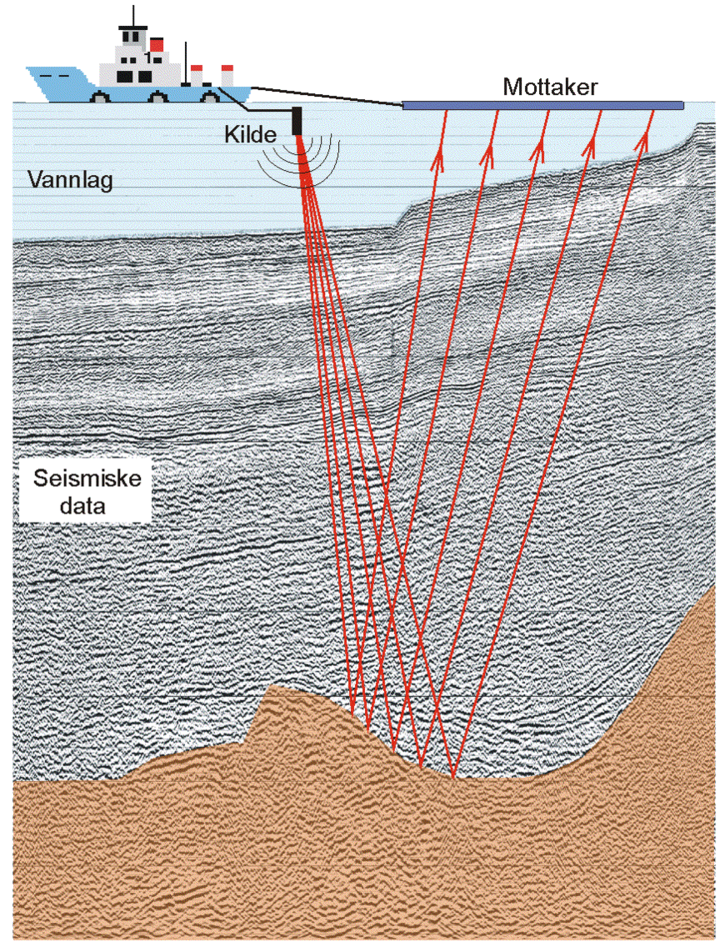All Categories
Featured
Table of Contents
Marine Geology And Geophysics in Caversham Western Australia 2023
This work is significantly contracted out, so consultancies offer another source of employment. Consultancy firms vary in size, from really little companies to big multinationals. Some consultancies are rather specialised in using specific geophysical techniques or working in specific places, while others provide a more diverse variety of services to their consumers.
The extraction of gas from land fill websites is another location of work and this may grow in the future. Expedition companies may undertake work for building firms, public utility, mining business and environmental agencies, so geophysicists may be utilized in any of these settings. Other employers include: geological surveysgovernment bodies and agenciesuniversities and research study institutes.


Jobs might be noted in the oil and gas sector press. Recruitment is affected by oil price changes and the level of competitors for positions varies depending on this. Professions Days, which cover the full series of geoscience professions and are typically participated in by a number of essential market employers, are run by The Geological Society.
Geophysical Surveys in Tuart Hill Aus 2020
Some of the big oil and gas business provide a full two-year structured training program across the breadth of geophysics, including the chance to experience operate in numerous groups before specialising in one area. Your training might include deal with: existing wellsmagnetic and gravitational prospective field data analysisresearchrock analysis. It's more normal for your preliminary training to be supplied on the job.

There may be a probationary duration during which you work alongside a knowledgeable colleague. Competency-based appraisals occur routinely in most companies. In smaller firms, and for scholastic posts, there is unlikely to be any official training - you'll be expected to start work straightaway and choose up abilities as you go along.
If you work for a smaller sized company, you might discover that you require to take responsibility for setting up and funding your own development and training. If you have a geology degree, subscription of The Geological Society can be useful for networking and for maintaining to date with the market.
Geophysicist Bob Embley: Ocean Exploration Careers in Nollamara WA 2020
You may also find it useful to join the PESGB (The Petroleum Exploration Society of Great Britain, which has a geophysics unique interest group. After a probationary period, and once you have actually acquired some experience, you might progress to senior geophysicist, then group leader and after that into a senior function in management.
The ease of movement in between functions depends upon the business structure. Research study at Masters or Ph, D level in a subject associated to geophysics or geosciences may aid with your career development and progression. The employment market within the oil and gas industry is very dependent on cost and this might impact your chances for profession progression.
Not all tasks are reliant on the oil and gas markets. For experienced geophysicists, freelance consultancy uses a good route for career advancement. You can also specialise in a particular area of geophysics. As a geophysicist, you're likely to have several jobs throughout your working life. International mobility is important for handling peaks and troughs in various nations at various times.
Geophysical Surveys Definition & Meaning In Stock ... in Neerabup Australia 2021
From geophysics, it's possible to concentrate on seismology (completing additional training to become a seismic interpreter) or to move into associated areas such as engineering geology or hazard prediction.
Choosing what to study in college is a difficult choice. Even if you understand that your field of interest lies in science, what program of study is ideal for you?
The first step to attaining your goal of ending up being a geophysicist is earning a degree. Even for entry-level positions in the field of geoscience, you'll need a bachelor's degree (a geophysicist college degree) from a recognized college or university. Some research positions need prospects to hold master's degrees or perhaps Ph.
Geophysical Survey Services - Geophysical Test Methods in Gosnells Australia 2023
Postgraduate degree are especially important if you prepare to teach at a four-year institution. Geophysicists apply physics principles and strategies to study the gravitational, magnetic, and electric fields of the earth. This enhances researchers' understanding of both the planet's interior core and its surface. Geophysicists must be able to: examine rocks, pictures, and other pieces of information perform research both in the field and in laboratories develop maps and charts of their findings compose reports To accomplish all this, trainees need a specialized education for geophysicist professions.
As specified above, you'll need a bachelor's degree in geoscience or an associated discipline, such as a physical science or a life sciences, to land an entry-level job. Trainees can likewise prepare by majoring in topics like: Biology Chemistry Computer system science Engineering Mathematics Physics The above geophysicist majors use a more generalized approach to a single scientific discipline, but a lot of programs need trainees to take one or more geology course.
Latest Posts
Geophysical Exploration in Hocking Australia 2022
5 Surface Geophysics in Sorrento WA 2021
Consumer Guide To Geological And Geophysical Services ... in Safety Bay Western Australia 2020